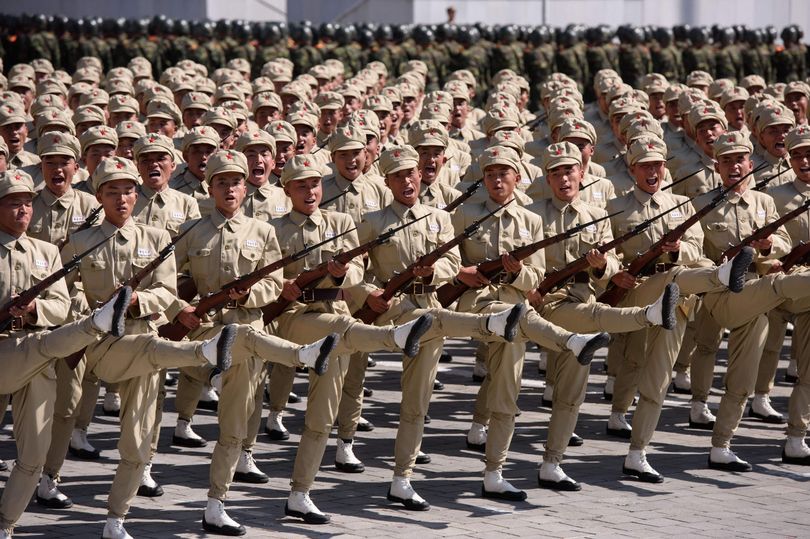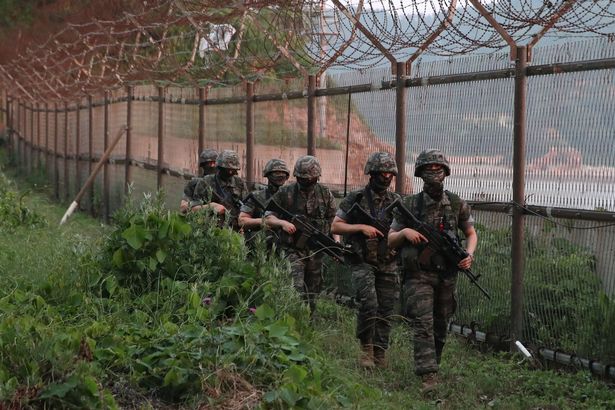 DNBC NEWS
DNBC NEWS
 DNBC NEWS
DNBC NEWS
North Korean army 'to move towards border for training near demilitarised zone'
By Dave Burke 22:43, 16 JUN 2020 UPDATED 03:28, 17 JUN 2020
Tensions are high on the Korean peninsula after an embassy building was destroyed in a missile attack by the North - prompting the South to station troops and tanks close to the border threatening retaliatio

The North Korean army is reportedly set to advance into the demilitarised zone on the border with South Korea - as the two states teeter on the brink of war.
State media in the North claims troops are advancing into the area of Kaesong & Mt. Kumgang.
Tensions are high on the peninsula after an embassy building in the Demilitarised Zone (DMZ) - set up to encourage better relations between the neighbours - was destroyed in a "terrific explosion" by missiles from the North.
It has led to fears of military clashes in the heavily guarded DMZ that divides the neighbours, who are technically still at war.
State media agency KCNA reports North Korea has also rejected South Korea's offer to send special envoys to ease escalating tensions.
The North fired its weapons in a rage after anti-Kim Jong-un leaflets were distributed by defectors branded "human scum" by the secretive state.
North Korean troops are amassing after the attack on the inter-Korea liaison office in the border town of Kaesong this morning.
But the South has not taken the attack lightly, warning that further action by Kim Jong-un's regime will be met with a firm response.
South Korea's deputy director of the national security office, Kim You-geun, said: "The government expresses strong regret over North Korea's unilateral detonation of the inter-Korean liaison office building.

"We sternly warn that we will strongly respond to it if North Korea takes any action that further worsens the situation."
And he told a briefing that the destruction of the office "broke the expectations of all people who hope for the development of inter-Korean relations and lasting peace on the peninsula".
He also branded the destruction of the facility, which has been in use since 2018, as a "betrayal".
South Korean vice unification minister Suh Ho, who co-headed the liaison office, called the demolition "unprecedented in inter-Korean relations'' and a "nonsensical act."
It had been closed since January as a result of the coronavirus pandemic.
Surveillance video released by Seoul's Ministry of Defence showed a large explosion that appeared to bring down the four-storey structure.